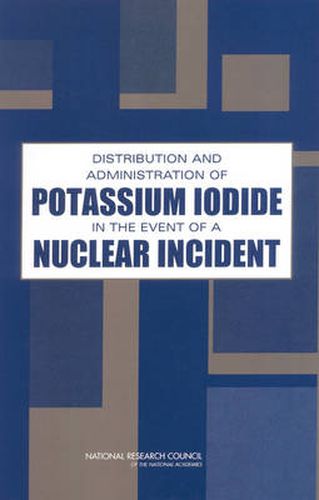Readings Newsletter
Become a Readings Member to make your shopping experience even easier.
Sign in or sign up for free!
You’re not far away from qualifying for FREE standard shipping within Australia
You’ve qualified for FREE standard shipping within Australia
The cart is loading…






Radioactive iodines are produced during the operation of nuclear power plants and during the detonation of nuclear weapons. In the event of a radiation incident, radioiodine is one of the contaminants that could be released into the environment. Exposure to radioiodine can lead to radiation injury to the thyroid, including thyroid cancer. Radiation to the thyroid from radioiodine can be limited by taking a nonradioactive iodine (stable iodine) such as potassium iodide. This book assesses strategies for the distribution and administration of potassium iodide (KI) in the event of a nuclear incident. The report says that potassium iodide pills should be available to everyone age 40 or younger - especially children and pregnant and lactating women - living near a nuclear power plant. States and municipalities should decide how to stockpile, distribute, and administer potassium iodide tablets, and federal agencies should keep a backup supply of tablets and be prepared to distribute them to affected areas.
$9.00 standard shipping within Australia
FREE standard shipping within Australia for orders over $100.00
Express & International shipping calculated at checkout
Radioactive iodines are produced during the operation of nuclear power plants and during the detonation of nuclear weapons. In the event of a radiation incident, radioiodine is one of the contaminants that could be released into the environment. Exposure to radioiodine can lead to radiation injury to the thyroid, including thyroid cancer. Radiation to the thyroid from radioiodine can be limited by taking a nonradioactive iodine (stable iodine) such as potassium iodide. This book assesses strategies for the distribution and administration of potassium iodide (KI) in the event of a nuclear incident. The report says that potassium iodide pills should be available to everyone age 40 or younger - especially children and pregnant and lactating women - living near a nuclear power plant. States and municipalities should decide how to stockpile, distribute, and administer potassium iodide tablets, and federal agencies should keep a backup supply of tablets and be prepared to distribute them to affected areas.